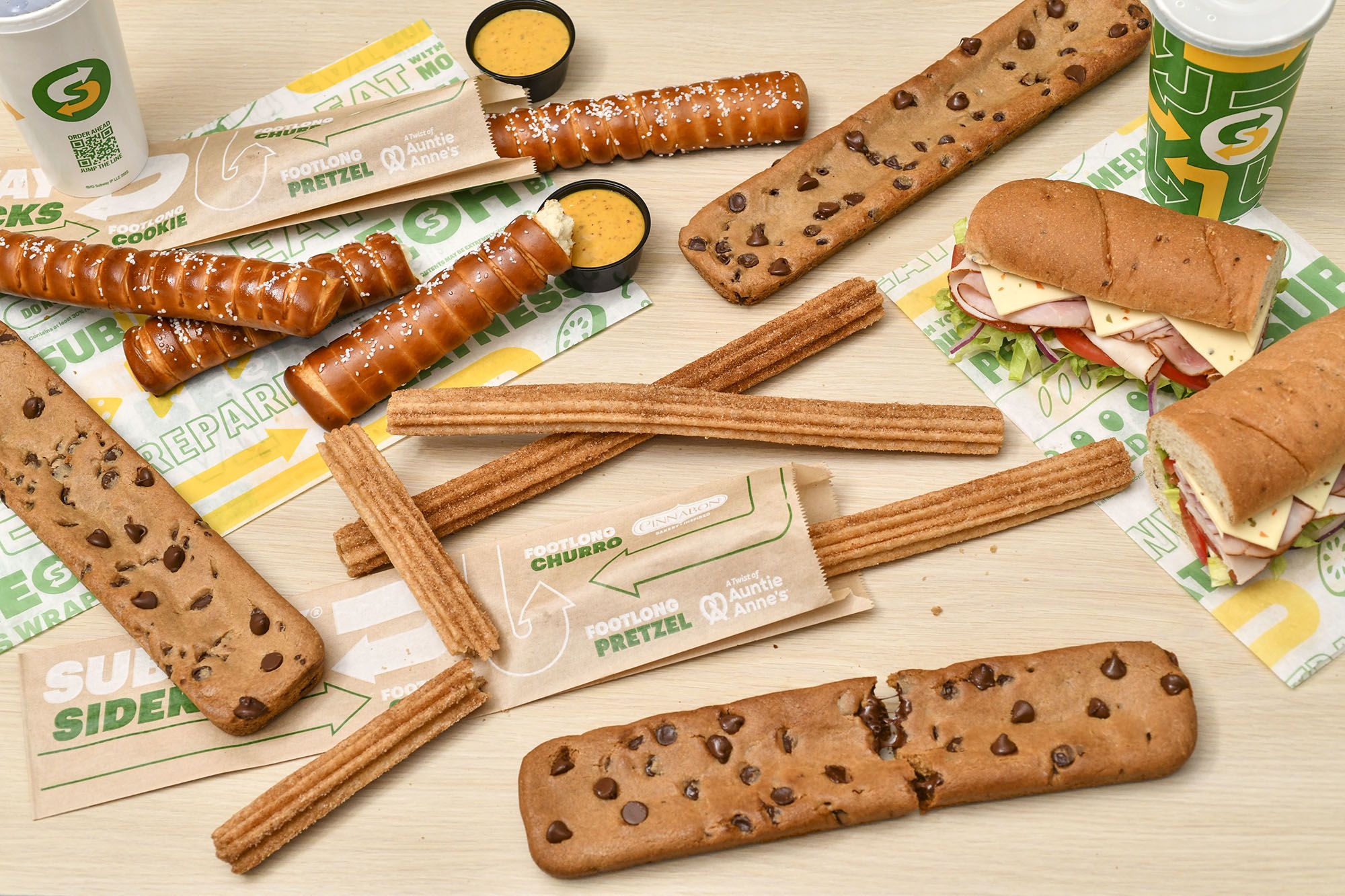Subway is adding something big to its menu
New York (CNN) — Subway’s footlong sandwiches are finally getting sides to match – and the company is hopeful the new menu items will aid in its turnaround efforts.
The chain is making a big update (literally) to its menu with the addition of three 12-inch snacks consisting of a chocolate chip cookie, a Cinnabon churro and a soft pretzel from Auntie Anne’s. Yes, they all are foot-long in size (and served hot).
The permanent sides, called Subway Sidekicks, will be available across the US beginning January 22. Prices will vary depending on market, but the suggested price for the churro is $2, the pretzel is $3 and $5 for the cookie.
Sidekicks marks a whole new menu category for Subway, best known for their sandwiches. The additions come from customers demanding more from the menu, according to Douglas Fry, Subway’s North America president.
“We’ve done that because we’ve gotten feedback from our guests because they can come in and grab their favorite sandwich, but they wanted some other reasons to come in,” Fry told CNN. “Grazing and snacking is on the rise, especially with our core consumers.”
Another benefit for Subway, and its bottom line, are that customers are adding the new items to their sandwich purchases — a deviation from the chain initially thinking that customers would just come in for the sides themselves, Fry said. In their tests, about half of customers added a Sidekick to their purchase.
Value was also a factor in launching Sidekicks, Fry said. “These footlong snacks come in at a great price. We’re going to see some great lift and excitement from college campuses … which, at the end of the day, is what we’re chasing after as we evolve the Subway brand.”
The addition of Sidekicks “makes sense,” said David Henkes, senior principal at Technomic, telling CNN that Subway needs to increase revenue somewhere since fast food customers have begun pushing back on price increases amid inflation.
“They’ve underperformed in the sandwich segment, so they need to shake things up a little bit and drive some incremental traffic,” Henkes said. Technomic data shows that Subway also lags in sales for sides and snacks compared to its competitors.
Saving Subway
The chain has undergone a makeover in basically all aspects of its business having struggled in recent years as competition has ramped up and as the nearly 60-year-old brand has fallen out of favor with customers.
As part of its turnaround effort, the company added customization to its menu, doubled down on pushing orders to its app, increased its international presence and most recently introduced freshly-sliced meats — a major shift from Subway’s previous method of delivering cold cuts pre-sliced.
The fixes have largely worked, although the privately held company doesn’t regularly release financial reports. Most recently, in July 2023, the company announced its 10th consecutive quarter of positive sales at stores open at least a year, including a 9.5% increase at its North America locations (it didn’t reveal specific numbers).
Despite the sales turnaround, the number of US Subway stores declined to 20,576 in 2022 according to Technomic. That’s a sharp decrease from its peak in 2015 when it had 27,219 locations.
Yearly sales at Subway US restaurants are still much lower compared to its sandwich-making rivals. Data from QSR Magazine reveals that its three main competitors: Jersey Mike’s, Firehouse Subs and Jimmy John’s, pull in about $1 million per unit, with an average Subway location raking in less than $500,000.
Last August, Subway sold itself to private equity firm Roark Capital for an undisclosed price, bringing to an end the sandwich chain’s near six-decade run as a family-owned business.
